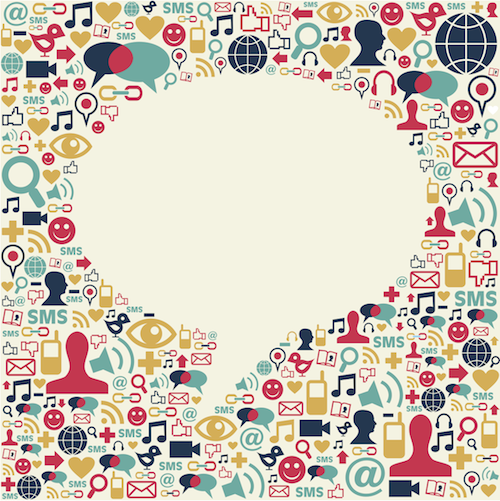The Weekly Writing Tips are a collection of best practices for writing and reporting at Global Voices. October's tips are brought to you by Oiwan [2], regional editor for Northeast Asia.
Social media has transformed the journalism world radically by empowering individuals to quickly distribute grassroots sources of information and spread news to large audiences. At the same time, professional journalists can also make use of these grassroots sources for their news stories.
This is particularly visible during natural disasters or deadly accidents. Photos and footage posted by ordinary people appear on social media much faster than conventional media's reporting does.
For professional journalists, one challenge is whether or not a social media source is trustworthy (Global Voices has a set of guidelines for verifying social media content) [3]. But when quoting from social media, there are other considerations in addition to the issue of accuracy, such as the public/private nature of social media.
Legal does not necessarily mean ethical
Of course, Twitter is public [4] and users have the options to configure their settings to keep their messages private. But just because something is public doesn't necessarily mean it's ethical to use. It is also true that for sensitive issues, such as sexual assault or suicide, people (not only journalists) have to be cautious when distributing the message to a wider community. Legal does not necessarily mean ethical [5], blogger Tauriq Moosa argues. (Hat tip to Sahar and Lauren for pointing out this debate.)
The discussion reminds me of a lesbian friend who suddenly came out on Facebook a few weeks ago. She was cautious enough to put a note in the message that she had hid the particular post from her mother and asked those who saw the message not to share or repost it. Her caution comes from her professional training as journalist. She explained later that even though she suspected her mother had already known her sexual orientation, she didn't want her to face any potential pressure that might come if her message circulated to a wider audience. On the other hand, coming out in “public” online is a political statement that she has to make.
My friend's public-except-her-mom coming out tells us again that social media is not just public; it is a mixture of public and private, personal and social. I also read friends’ messages on social media in which they share about their illnesses. Many are looking for support for a very personal struggle, and are not looking to find widespread fame for their illness. We should be careful to secure the authors’ permission before using these quotes in a story beyond what their original intention was.
Security concerns
In addition to the public/private nature of social media, another ethical issue that we have to address when quoting from social media is the political context of the local communities.
In the case of China, social media has adopted the real name registration system. The government authorities have forced netizens to be legally accountable of their online speech. While that does help with verification, since the identity of the speakers, especially public figures, are automatically verified and this is visible to the public, I seldom contact the writers to request their permission to quote them or ask them for a follow-up comment, mainly because the communication with overseas media would potentially bring them trouble.
Moreover, when quoting ordinary netizens who did not publicize their real identity on their profiles, sometimes I do not specifically identify their names when the quotes are critical of the authorities. Even though the authorities could track the origin of the message through investigation, the writers could then defend themselves, saying that the quotes could have come from those who retweeted the message that they did not intend to distribute.
In fact, I've noticed that a number of bridge blogs, which used to quote directly from online comments, have given up the practice so as not to cause trouble for the netizens. The question of whether or not my quotes could bring netizens trouble is always in the back of my mind when I write a post about China for GV. My answer usually depends on the situation, depending on the issue (how sensitive it is), political environment, the writer (whether the person is aware of the potential consequences) and the reach of the messages.
There are many invaluable works that face similar dilemmas, like Free Weibo, which back ups censored Weibo posts and makes them visible to the public, and many other human rights-related campaigns. Each project has their own priorities and makes a difficult choice among conflicting values. I think that's the essence of ethics — not making decisions lightly.
